Giant isopods are woodlice-like isopods that can reach 76 cm in length.
In the waters of the Atlantic, Pacific and Indian oceans, creatures similar to large wood lice live - giant isopods. These crustaceans have been found in the bottom environment at depths ranging from 170 to 2140 meters, where the pressure is high and the temperature is very low (approximately 4 °C).
Interestingly, according to many scientists, giant isopods lived more than 160 million years ago, even before the Pangea supercontinent broke apart.
(Total 11 photos)
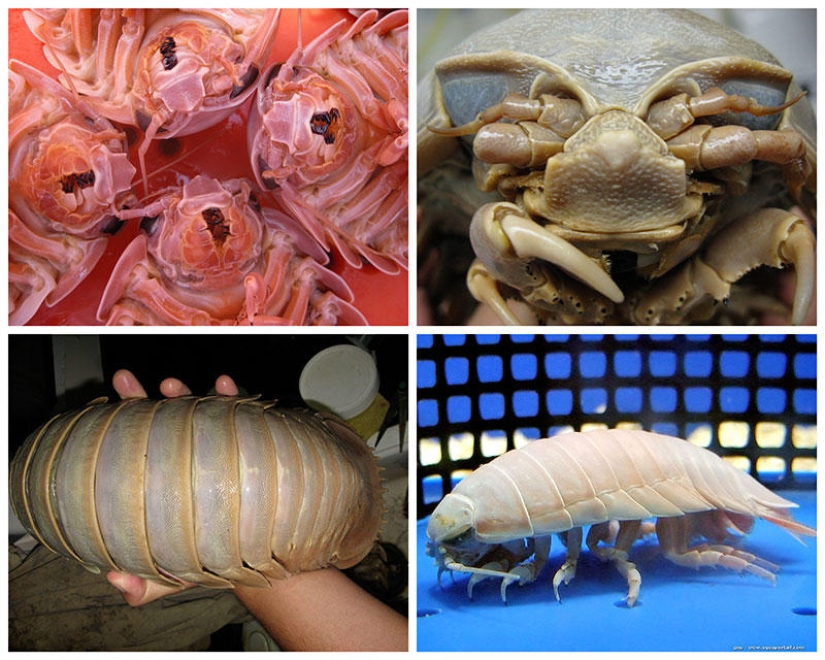
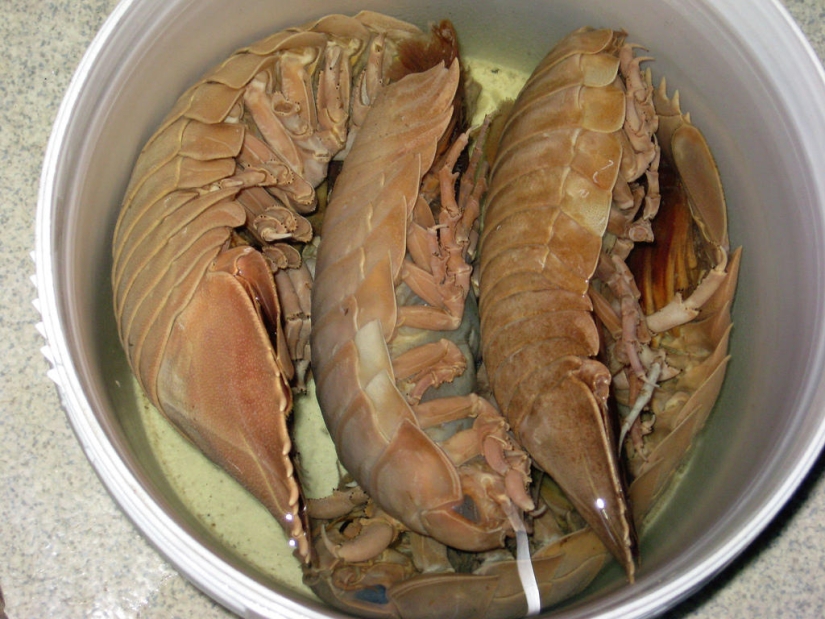
1. Giant isopods or cephalopods (lat. Bathynomus giganteus) belong to the genus Bathynomus, in which 9 species are currently distinguished. All of them are found in different places of the Atlantic Ocean at a depth of 170 to 2.5 thousand meters. However, most of these creatures live at a depth of 360 to 750 meters.
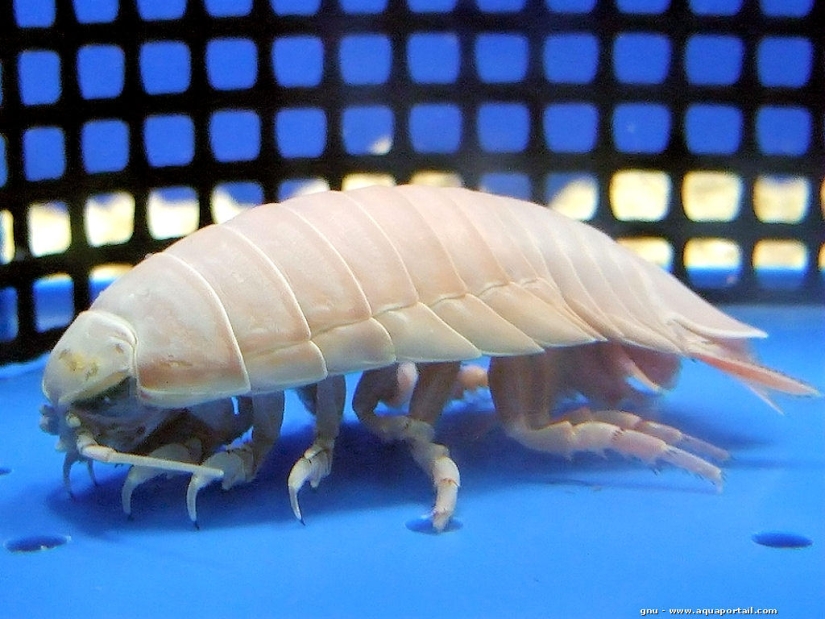
2. In appearance, isopod crayfish most of all resemble wood lice. Only their sizes are somewhat larger - they can grow up to half a meter, and the largest specimen caught weighed 1.7 kg with a length of 76 cm. These marine animals are a great example of deep-sea gigantism.
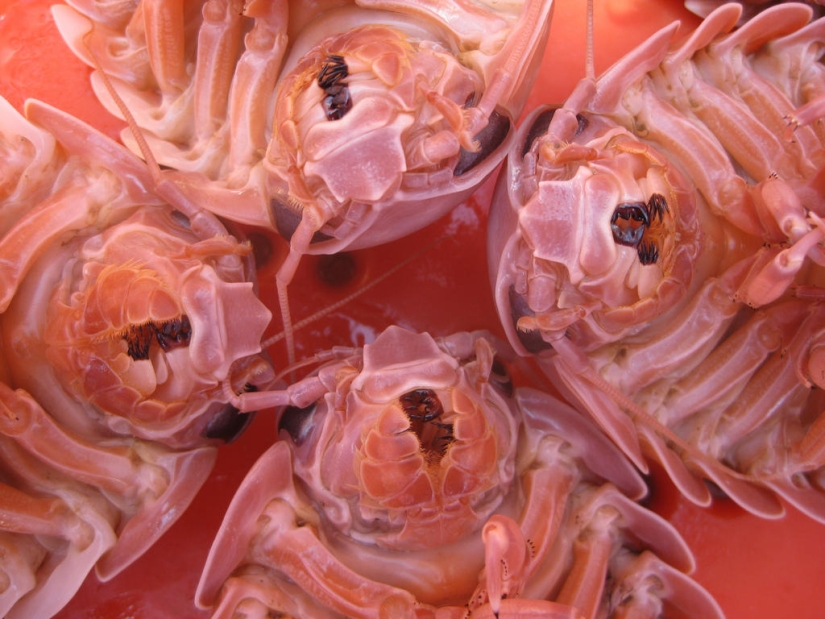
3. Their close relatives in shallow water or land reach an average length of 1 to 5 centimeters.
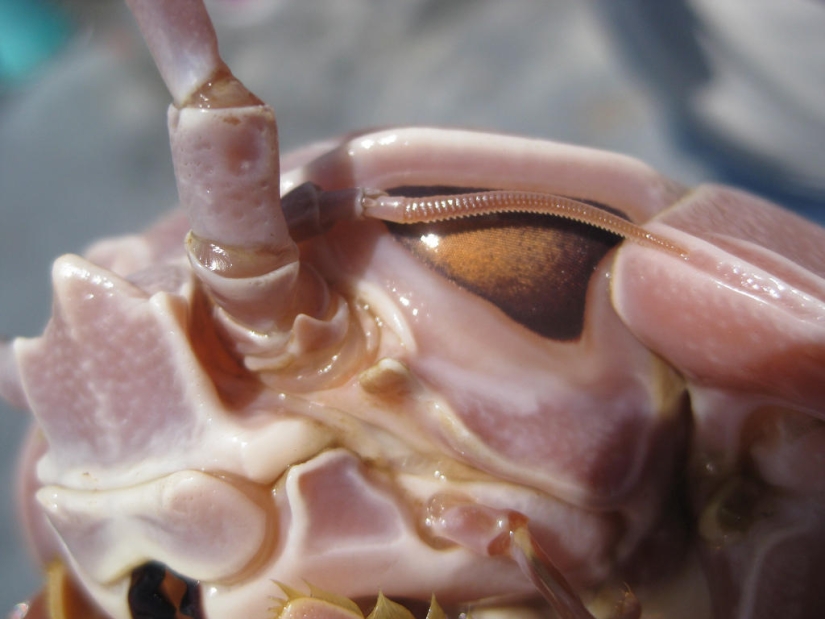
4. Actually, they took isopods for woodlice back in 1879, when the French zoologist Alphonse Milne-Edwards first described them. The young male was caught then from the bottom of the Gulf of Mexico. The discovery of this species at the end of the 19th century completely refuted the then popular idea of the lifelessness of the ocean depths.
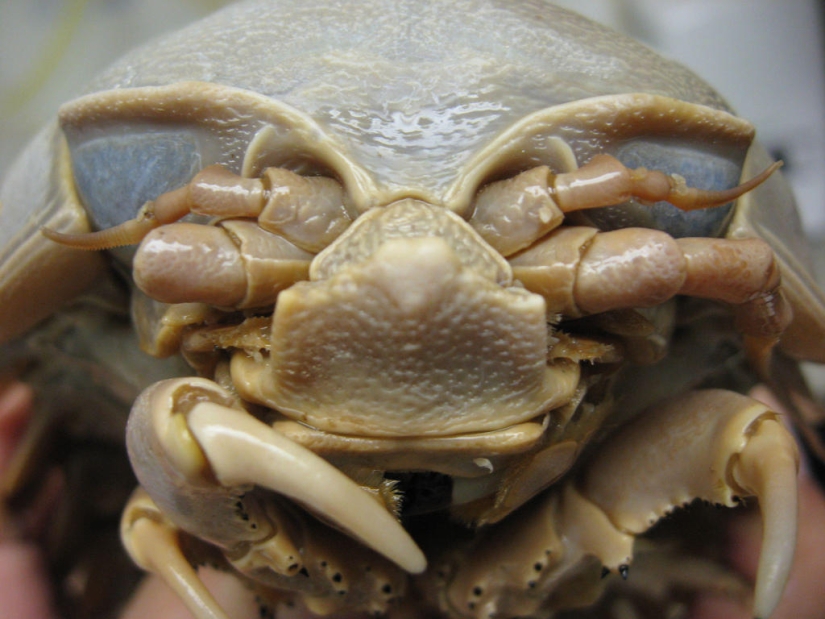
5. Today it already seems strange to believe that no one lives at the bottom of the sea, because the carcasses of whales, large sharks and other living creatures get there after natural death. Someone has to take care of the cleanliness of the ocean! So the giant isopods took on this, not very honorable, to be honest, role. In addition to carrion, they feed on sea cucumbers, sponges, and other prey that does not move very fast.
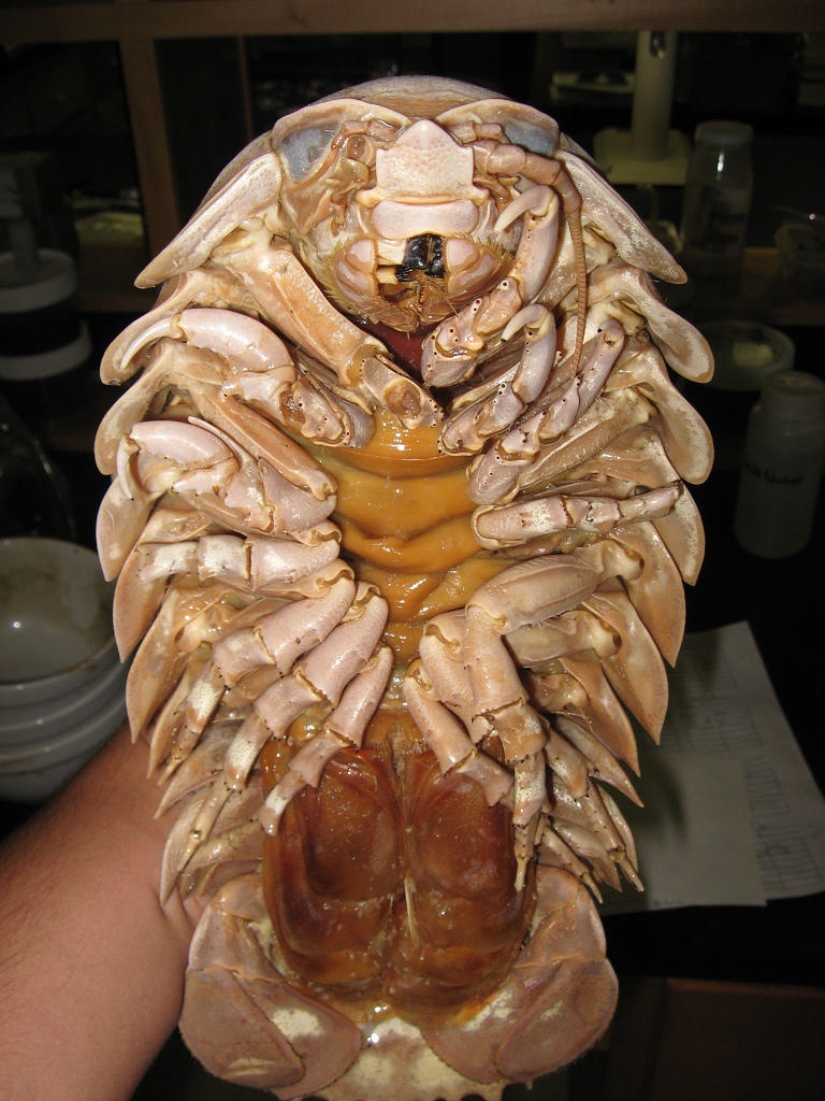
6. And since there is not so much food on the ocean floor and it is quite difficult to find it in pitch darkness, isopods have to starve from time to time.
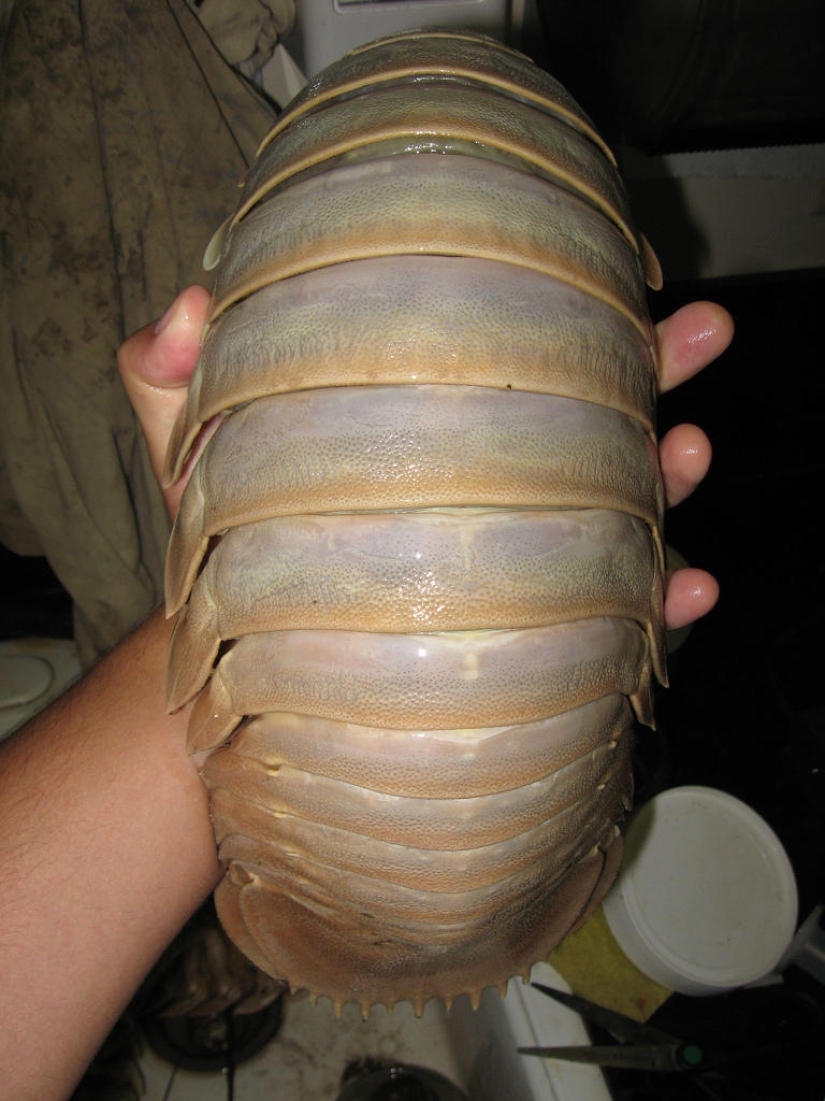
7. It has been established that one such cancer is able to do without food as much as 8 weeks. But when a carnivore finds a fairly large prey, it is already full, as they say, from the belly.
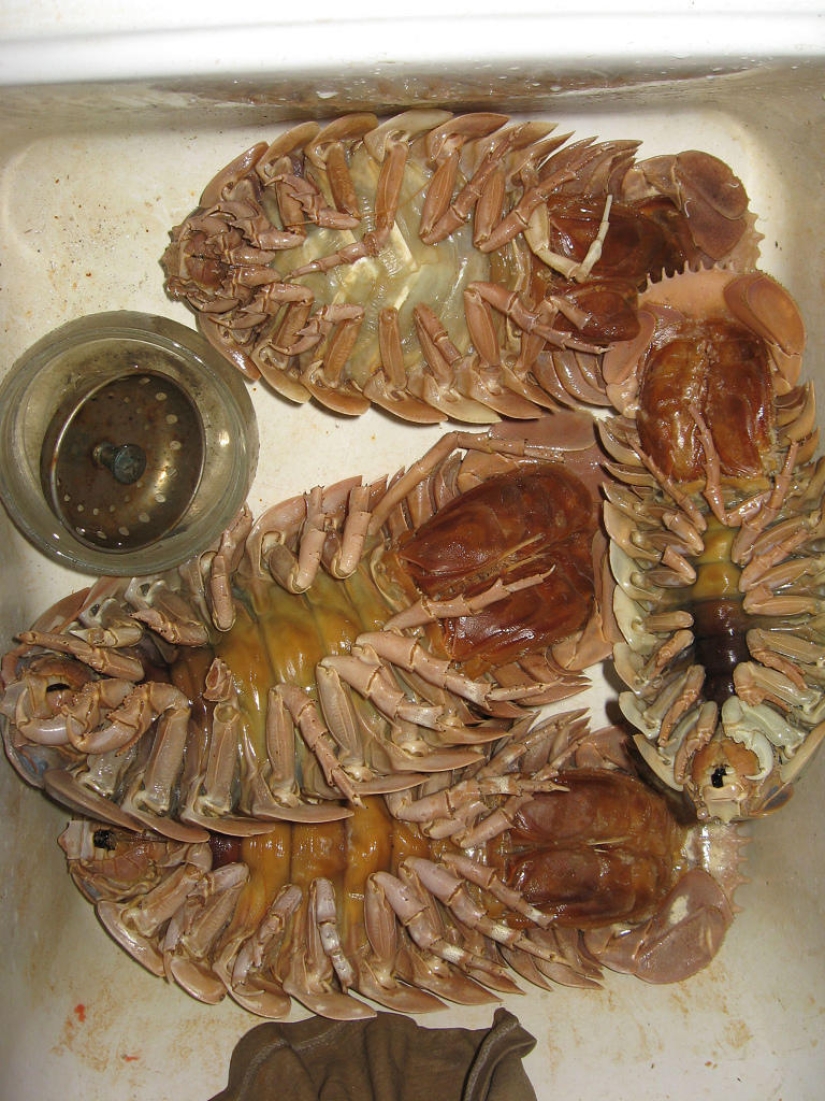
8. True, it is difficult to detect their belly as such, because their entire body is hidden under a hard, calcareous, external skeleton.
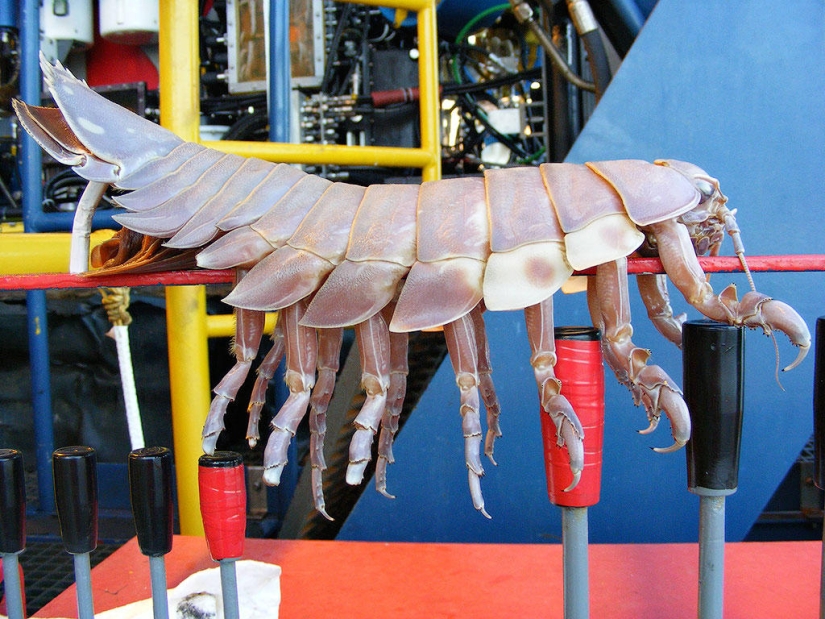
9. In case of danger, they know how to curl up into a “ball”, which provides themselves with reliable protection from enemies. The shell consists of several segments, the first of which is fused with the head. The lower segments form a kind of tail shield located above the shortened abdomen.
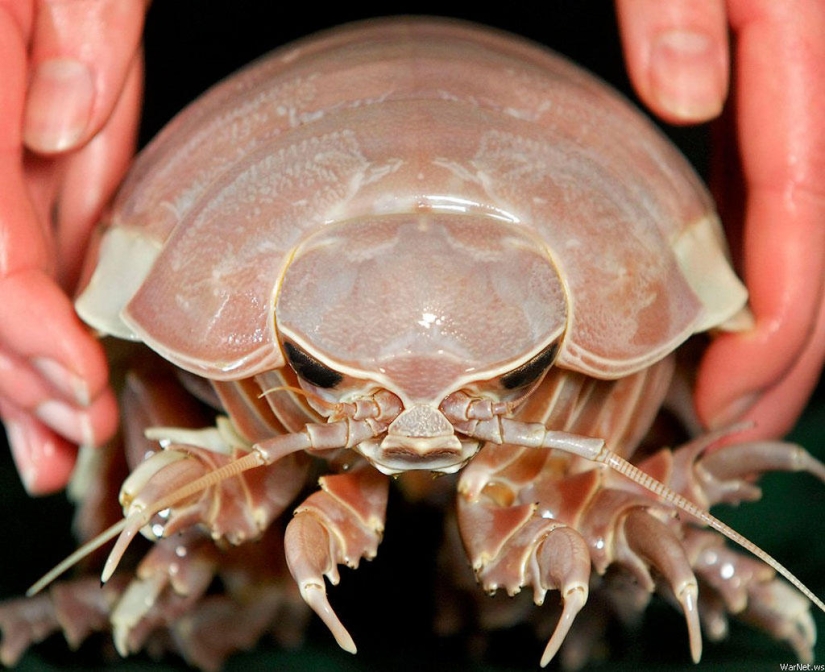
10. The eyes of giant isopods match their owners - large, complex, consisting of 4 thousand faces. They are located at a decent distance relative to each other and provide crayfish with frontal vision. Also in the arsenal of these creatures there are two pairs of antennas and seven pairs of legs. The first pair of claws is designed to bring food to the four pairs of jaws. The abdomen is made up of five segments.
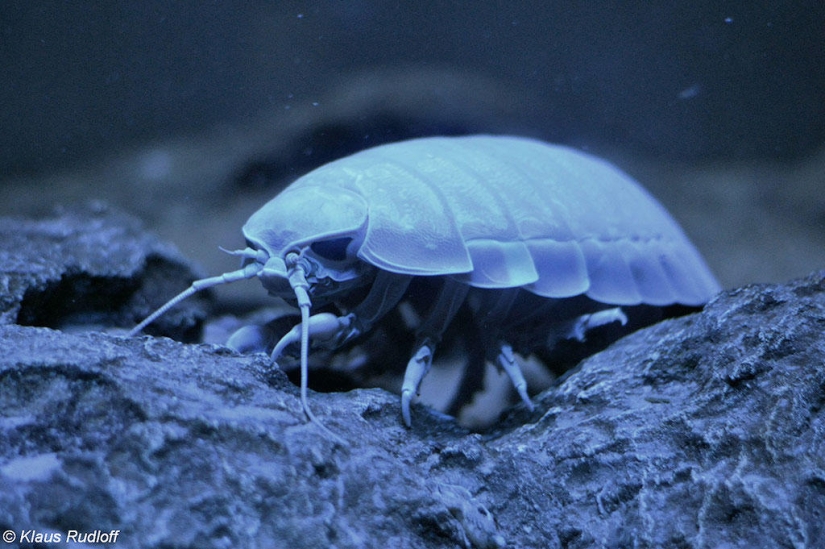
11. As can be seen, the appearance of isopods is very peculiar. In addition, adult females also have so-called brood sacs, where fertilized eggs develop. By the way, these eggs are considered the largest among all marine invertebrates. Naturally, such a delicacy needs protection from voracious marine life. So the female carries all her eggs with her in her pouch until they develop into small isopods. Unfortunately, the exact time of this process is not known. But it is known that they come out not as larvae, but as fully formed young isopods.
Keywords: Indian ocean | Underwater world | Pacific ocean
Post News ArticleRecent articles

It's high time to admit that this whole hipster idea has gone too far. The concept has become so popular that even restaurants have ...

There is a perception that people only use 10% of their brain potential. But the heroes of our review, apparently, found a way to ...
Related articles

Shannon Leah Myers (Shannon Leah Myers) — a 31-year-old diver from New Zealand, which is often pleasing to the online ...

A talented underwater photographer, as well as a professional freediver John Kowitz has collected a collection of images from the ...

Japanese military planes, trains, tanks, ships and other equipment are now covered with corals and lie on the bottom of the Pacific ...

New Year's is a time to surprise and delight loved ones not only with gifts but also with a unique presentation of the holiday ...